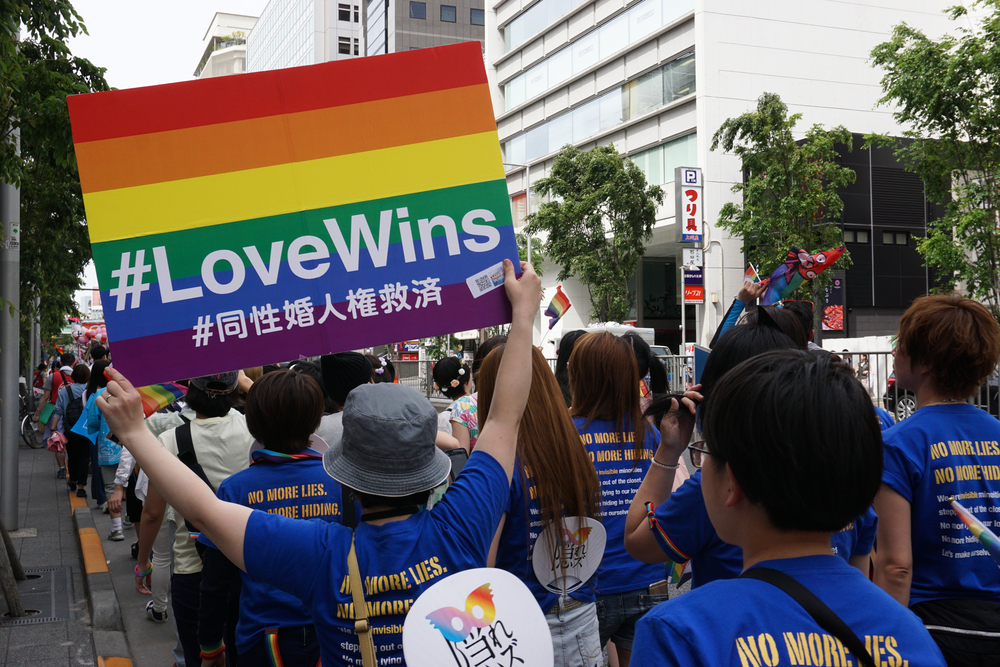 For years, a line in Japanese law meant to ensure that marriage is consensual and free from coercion has been interpreted to keep same-sex marriage illegal. Under Japanese law, marriage must be based on “the mutual consent of both sexes.” Under this stance, Japan is the only one of the G7 nations that form the world’s leading edge in modernity to not only refuse to allow same-sex marriage in Japan, but to recognize it. Same-sex couples married overseas are not eligible for spouse visas, nor can someone sponsor their same-sex partner for citizenship, a massive hurdle.
For years, a line in Japanese law meant to ensure that marriage is consensual and free from coercion has been interpreted to keep same-sex marriage illegal. Under Japanese law, marriage must be based on “the mutual consent of both sexes.” Under this stance, Japan is the only one of the G7 nations that form the world’s leading edge in modernity to not only refuse to allow same-sex marriage in Japan, but to recognize it. Same-sex couples married overseas are not eligible for spouse visas, nor can someone sponsor their same-sex partner for citizenship, a massive hurdle.
Six plaintiffs (three same-sex couples) brought a suit against the Japanese government beginning in the Sapporo District Court, suing for token amounts (Less than $10,000 each) in recompense for the legal difficulties being unable to marry had caused them. The court denied them the money, but the final ruling is likely to be infinitely more valuable.
According to the Sapporo District Court’s Judge Tomoko Takebe, not allowing same-sex marriage is a violation of Japan’s Constitution. Article 14 of their Constitution prohibits discrimination “because of race, creed, sex, social status, or family origin.”
According to LGBT activists in Japan, progress for equal rights in that country has lagged due to the high pressure for social conformity. Deviation from the norm is highly marginalized, and it is difficult to get traction for popular support from the margins. It is perhaps a clear indication that this is still a problem that the six plaintiffs in the Sapporo ruling chose to identify themselves only by number, keeping their identities secret in self-defense.
“I hope this ruling serves as a first step for Japan to change,” said one of the plaintiffs, a woman who identified herself as “Plaintiff No. 5.”
Four other similar lawsuits regarding same-sex marriage in Japan are still pending in on other major Japanese cities.
Editorial credit: Arthur Matsuo / Shutterstock.com
